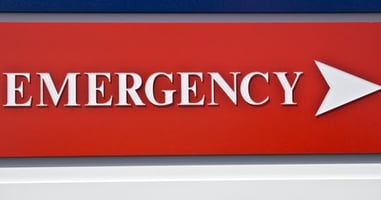Use of medication for attention-deficit/hyperactivity disorder (ADHD) does not appear to increase...
Escalating Financial Incentives May Increase Antidepressant Adherence, Pilot Study Shows

Offering increasing financial incentives to patients recently prescribed antidepressants may increase the likelihood they take the medication as prescribed, suggests a report in JAMA Psychiatry. The pilot study also found patients who received the financial incentives over six weeks were more likely to report improvements in depression symptoms compared with those who received antidepressants only.
For the study, Steven C. Marcus, Ph.D., of the University of Pennsylvania School of Social Policy and Practice and colleagues enrolled 120 patients aged 21 to 64 with depression (Patient Health Questionnaire-9 [PHQ-9] score of 10 or above) who had received a prescription for an antidepressant from a primary care provider in the past 10 days. (Patients diagnosed with substance use disorder, schizophrenia, bipolar disorder, and/or who were pregnant were excluded from the study.) The researchers then randomly assigned the participants to one of three groups: (1) usual care, (2) usual care and escalating daily financial incentives ($2/day, increasing by $1/week up to $7/day), or (3) usual care and deescalating financial incentives ($7/day, decreasing to $2/day) for each antidepressant-adherent day.
Marcus and colleagues monitored the participants’ daily antidepressant adherence using smart pill bottles, and participants assigned to the two financial incentive groups received weekly credits to a debit card and text notifications. The participants’ depression symptoms were evaluated at the start of the study and again six weeks after they began taking antidepressants. Depression response was defined as a ≥50% decrease in PHQ-9 score from initial screening and depression remission was defined as a PHQ-9 score of <5.
At six weeks, participants in the group assigned to escalating financial incentives were more likely to be adherent than participants in the control group (mean adherence, 90.7% vs. 74.9%). Additionally, participants in the escalating group were significantly more likely than those in the control group to experience depression response (65% vs. 40%) and remission (35.0% vs. 8.6%). Participants in the group assigned to deescalating financial incentives were also more likely than controls to experience symptom response (63.2%) and remission (26.3%) than controls, but they did not have significantly greater adherence.
“Although antidepressant medications are efficacious for depression, nonadherence frequently undermines their effectiveness,” the authors wrote. “Future research should include evaluations of financial incentives powered to ascertain sustainability of antidepressant adherence and symptom improvement,” they concluded.
For related information, see the Psychiatric Services article “Use of Behavioral Economics to Improve Medication Adherence in Severe Mental Illness.”





